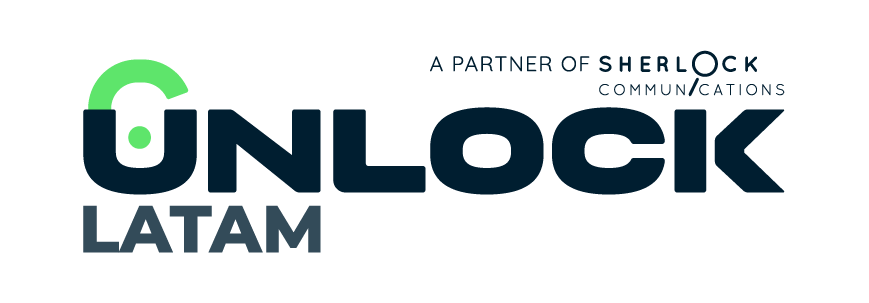What is a CRM: the technology that changed sales
It is a very common acronym among those of us who work in marketing and sales, but it never hurts to explain precisely what a CRM is, what it means and why it is a technology that has changed the ways of selling products and services.
CRM stands for “Customer Relationship Management” and is a software system that helps business owners easily track all communications and foster relationships with their prospects and customers.
This technology has evolved a lot in recent years, integrating different functionalities and resources, involving different areas, at different times, covering the operation from end to end.
That´s why today, when we talk about a CRM system, we are referring to a set of strategies, practices, tools, and technologies that companies use to manage and improve relationships with their customers.
What is a CRM software
Hiring or acquiring a CRM system is essential when a company begins to grow. A spreadsheet is great if someone has a limited number of clients and can track static information (name, email address, phone number, etc.).
But a spreadsheet cannot compete with a CRM in tracking more complex and dynamic data, nor in the precision with which it crosses and the agility with which it crosses important information, which allows more intelligent and effective decisions to be made.
Precisely, good CRM software replaces the “artisanal” management of customer relationships to offer greater professionalism, organization and efficiency. By integrating a multitude of spreadsheets, databases and applications, you not only improve time management, but also increase conversion.
What a CRM is for and how it works
A CRM is a software tool that can be more or less complex, depending on needs and budgets. It is a technology that allows you to obtain very diverse information, such as what emails a contact opened, what pages they visited, what forms they filled out or where they abandoned them, when their last purchase date was, what their average ticket is, their purchase frequency, etc.
In minutes, and an updated manner, the entire team can access the information they require, at the right time. The CRM connects all customer and potential customer data in one place and delivers valuable information in a simple, easy-to-interpret way.
It also consolidates all communications (form filling, calls, emails, text messages, and meetings), documents, quotes, purchases, and tasks associated with each lead and customer.
How to choose a good CRM
An efficient CRM system works well for whoever uses it. It must respond to the needs of the business and the operation in general. It all depends on the scale, the number of clients and teams involved, integrations with other technologies and processes, etc.
But, in general, we can say that the best CRM software today is what allows us to x-ray the customer and understand almost in real time what stage they are in in the purchasing process. In a company with intentions to grow and take billing to another level, technology is key: in fact, scoring leads is almost impossible without a CRM.
Thanks to new sales software, we can quickly discern how good or cold a potential client is, organize a well-oiled sales prospecting process, and nurture the ABM strategy with the best tools.
One very concrete example is enough to understand the potential of a modern CRM: the system automatically updates as prospects and customers take action, while data in a spreadsheet becomes obsolete the moment someone stops using it. add them manually.
The advantages of having a good CRM
The main goal of a CRM system is to help companies understand the needs and behaviors of their customers, which in turn allows them to provide a more personalized and efficient service.
Having a good CRM has many benefits:
- Improves customer data management: Store detailed information about customers, including purchase histories, previous interactions, preferences and contact data.
- It allows you to automate tracking, marketing and sales tasks, which helps improve efficiency and productivity.
- It helps in segmenting customers based on criteria like demographics, purchasing behavior, location, etc., making it easy to personalize marketing strategies.
- It is a very useful tool in customer service: it facilitates the management of requests and queries, improving the quality of service and experience.
- It provides insights and data analytics that help businesses make informed decisions and better understand customer behavior.
- Improves customer retention: By enabling more effective and personalized communication, a CRM system can help retain existing customers and build loyalty.
- Facilitates reporting on key metrics related to customer interactions and sales and marketing performance.
CRM systems are used by a wide variety of industries and types of businesses to manage and improve customer relationships. They can be customized to the specific needs of each business and can be implemented on a variety of platforms, from on-premise software to cloud-based solutions.
Without a doubt, a good CRM allows organized and scalable growth, capable of generating what Aaron Ross called Predictable Revenue.
Mastering Outbound Sales: Strategies for Predictable Revenue Growth
Mastering Outbound Sales: Strategies for Predictable Revenue Growth Nobody said it better than Aaron Ross, author of Predictable Revenue: “You want growth that doesn’t require guessing, hope, and frantic last-minute...
The Role of Sales Development Representatives (SDRs) in Predictable Revenue
The Role of Sales Development Representatives (SDRs) in Predictable Revenue Sales Development Representatives (SDRs) play a crucial role in the implementation of the "Predictable Revenue" framework, initially conceptualized by Aaron...
B2B prospecting: finding high-quality leads
B2B prospecting: finding high-quality leads Although there are very common concepts among those of us who work in different areas of marketing, more than once we take for granted that...



